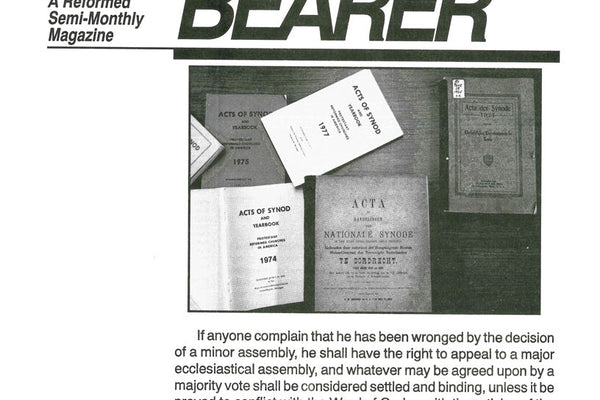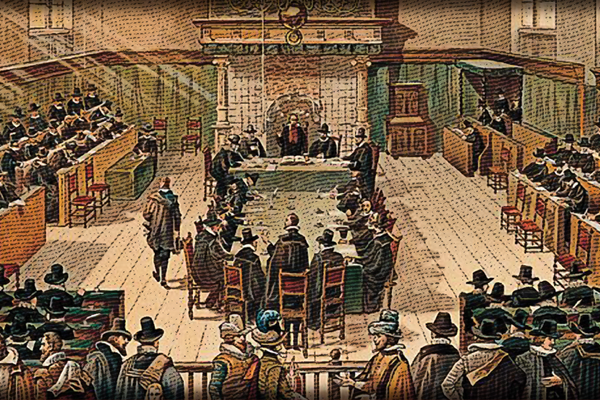Your cart is empty now.
Gleanings in the Church Order (3): Legality at the Assemblies
Perhaps one of the least understood matters in the Church Order is legality at the broader (or major—not higher) assemblies of classis and synod. Assuming that the matter is ecclesiastical in nature and manner, what may and may not be treated at classis or synod?
Gleanings in the Church Order (2): The Assemblies
An assembly, specifically an ecclesiastical assembly, is a gathering of officebearers. The church order does not have in mind here the gathering of the whole congregation for worship or for some other activity. Those assemblies are, of course, very important. Nevertheless, the assemblies of Articles 29-52 are the assemblies of officebearers for official ecclesiastical business. The church order speaks of three assemblies: the consistory, the classis, and the synod.Gleanings in the Church Order (1): The Offices
For many the Church Order is a dull, unexciting document. At first glance, it seems to be a book of interest to none but elders, deacons, and pastors. But the church order is necessary because God requires that his church be orderly. Paul writes, “Let all things be done decently and in order” (1 Cor. 14:40). That really is the motto text behind the church order: we do not want anarchy, chaos, or disorder in the congregation; we want order and peace. To another congregation Paul writes that he “[rejoices] and [beholds] [their] order” (Col. 2:5). To another he writes to warn against “every brother that walketh disorderly” (2 Thess. 3:6, 11).
Order in the church is important, therefore.
The Binding Decisions of a Reformed Synod
It cannot be said that Protestant Reformed people are wrapped up in the annual meeting of synod. Unless there is a case of special interest to the churches, visitors at synod are few. Seldom is the church building packed at the worship service with which synod begins. It is doubtful that the members wait with bated breath for the decisions of synod in the Acts.
Nevertheless, it lives in the congregations that synod is an important part of our church life. There is understanding that synod settles matters of dispute in the churches. The churches carry out the decisions of synod that bear on the denominational life. Consistories and individuals submit to decisions of synod with which they themselves are in disagreement. It is accepted that synod’s decisions will be considered settled and binding by all the consistories and by all the members.
This is as it should be. This is healthy. This is Reformed. The broader assembly of the churches, synod now in particular, is the necessary expression of the unity of the church of Christ. In keeping with the purpose of the unity of the church, synod serves for the mutual help of the congregations and represents the cooperative labor of all the churches of the denomination on behalf of Christ their common Head.
Reformed Church Order: Law of Christ
The life and labor of the Protestant Reformed Churches are regulated by a church order. This is the church order adopted for Reformed churches by the Synod of Dordt, 1618-19.
The church order is law for the churches. It is the authoritative standard to which both consistories and church members must conform. There are sanctions for the unruly and disobedient. The member who handles sin in the congregation by broadcasting it from the housetop, or over the telephone, rather than following the way prescribed in Articles 71-74 of the church order, will himself be disciplined. The minister who publicly agitates against the decision of his consistory will be censured for schism. The elder who is “captious and . . . vehement in speaking” at classis will be silenced and, if need require, disciplined by the president of the assembly. The consistory that refuses to submit to a decision of synod will be set outside the union of the churches of Christ.
















